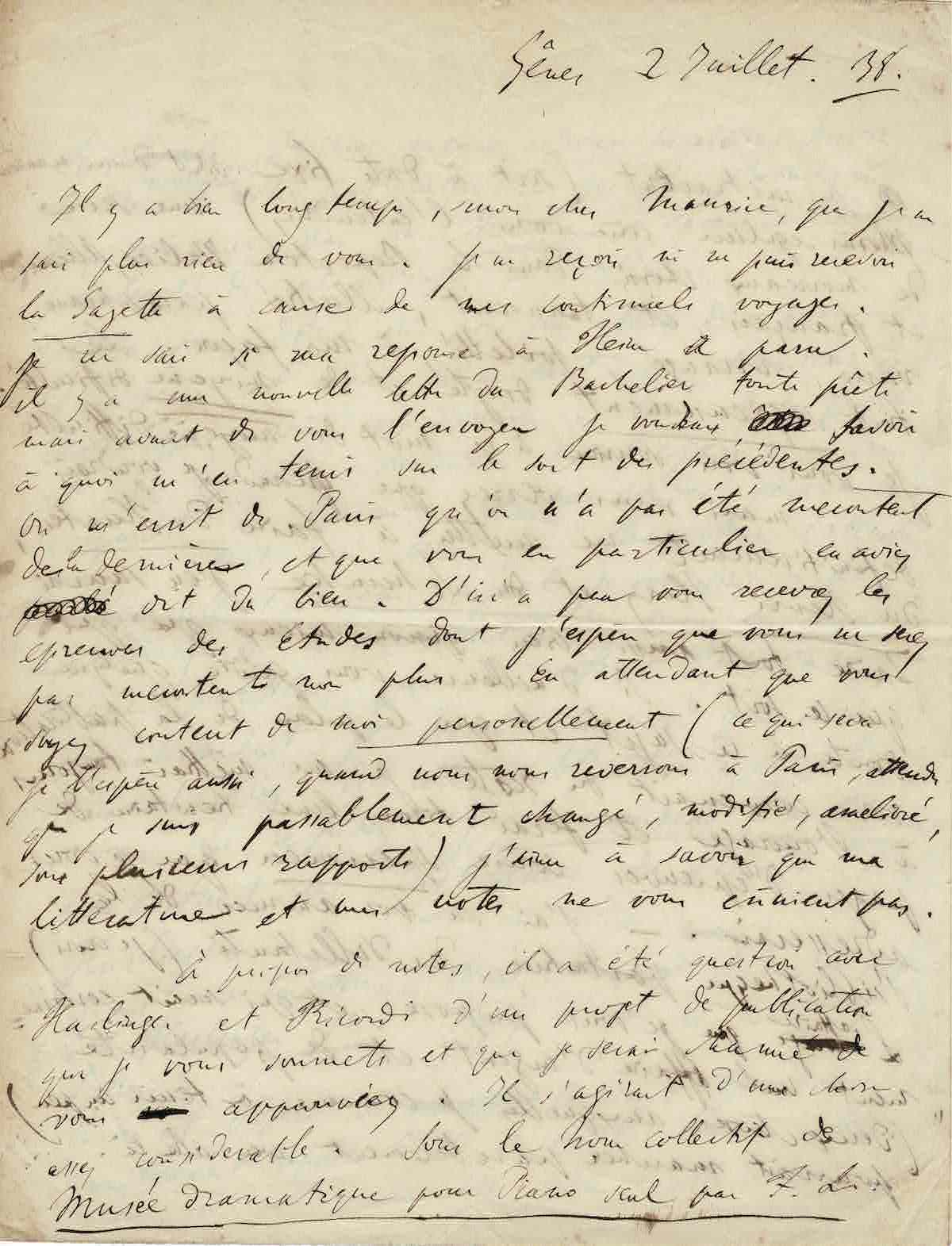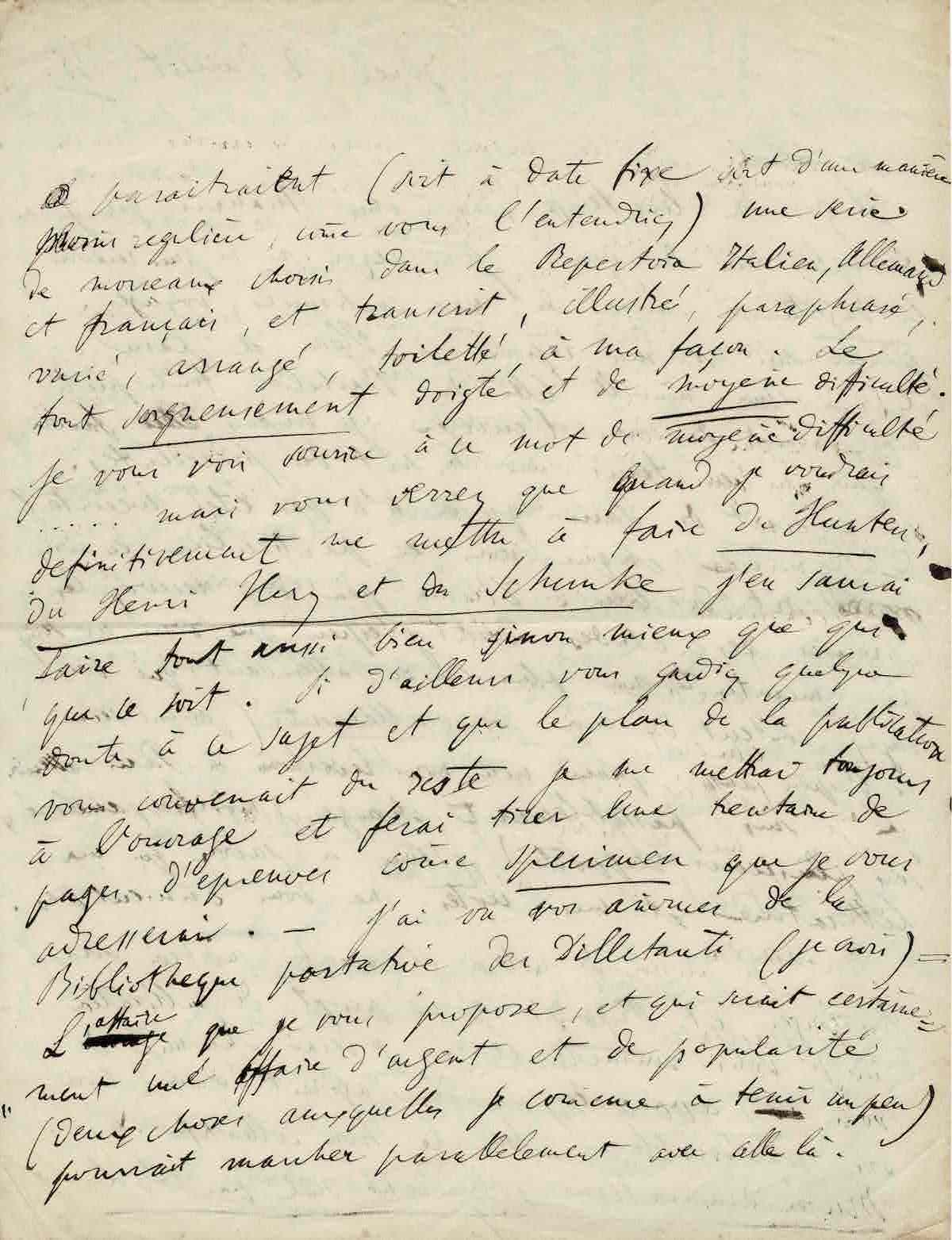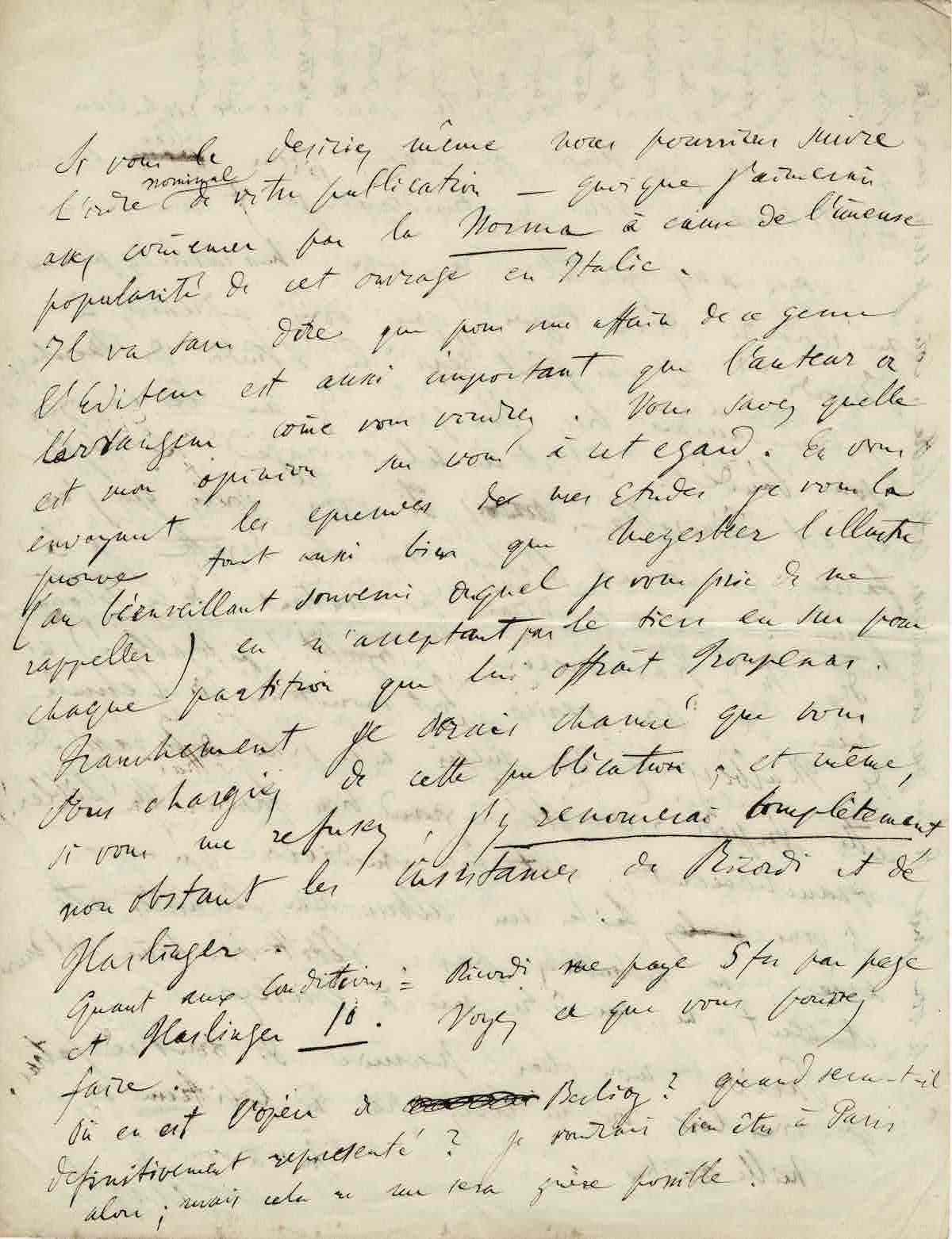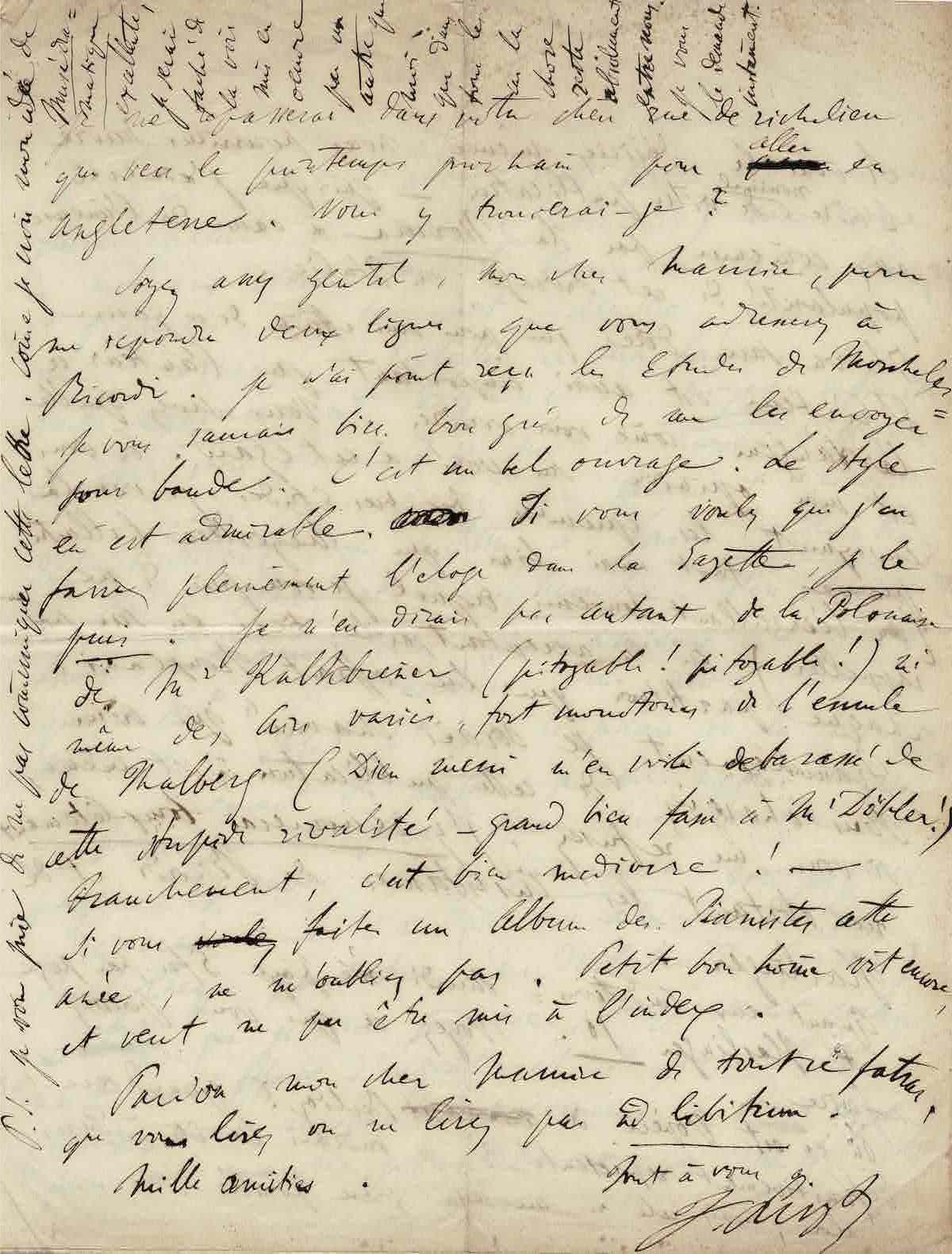Franz LISZT (1811.1886)
Autograph letter signed to his musical publisher in Paris, Maurice Schlesinger.
Four large pages in-4°. Unpublished letter. Genoa. July 2, 1838.
“Under the collective name of Dramatic Museum for Piano Solo by FL would appear (…) a series of pieces chosen from the Italian, German and French Repertoire, and transcribed, illustrated, paraphrased, varied, arranged, polished, in my own way . »
After his dazzling Viennese success during the concerts given for the benefit of the victims of the Pest floods, and at the dawn of his period of splendor ( Glanz Periode ), Liszt, reluctantly, returned to Italy with Marie d' Agoult, tortured.
Evoking his classmates Berlioz, Thalberg, Meyerbeer, Moscheles, the Hungarian composer, quite changed, modified, improved, in several respects , (re)launches into work and new projects, proposing to Maurice Schlesinger – editor and founder of the Gazette Musical – quite a considerable thing.
Long and superb letter, unpublished, testifying to the intellectual and musical abundance in Liszt's mind.
________________________________________________________________________________________
“It’s been a long time, my dear Maurice, since I knew anything about you. I do not receive and cannot receive the Gazette because of my continual travels. I don't know if my response to [Heinrich] Heine has appeared. There is a new letter from the Bachelor ready but before sending it to you, I would like to know what I think about the fate of the previous ones. They wrote to me from Paris that they were not dissatisfied with the last one, and that you in particular had good things to say about it. Before long you will receive the proofs of the Studies [second version of his twelve Studies of transcendent execution] with which I hope you will not be dissatisfied either. While waiting for you to be happy with me personally (which I also hope will be, when we meet again in Paris, given that I am quite changed, modified, improved, in several respects ), I like to know that my literature and my notes won't bore you.
Speaking of notes, Haslinger and Ricordi discussed a publication project, which I am submitting to you and which I would be delighted to see approved. This would be quite a considerable thing. Under the collective name of the Dramatic Museum for Solo Piano by FL would appear (either on a fixed date or in a more regular manner, as you wish) a series of pieces chosen from the Italian, German and French Repertoire, and transcribed, illustrated , paraphrased, varied, arranged, polished, in my own way . All carefully skillful and of medium difficulty. I see you smiling at this word of medium difficulty but you will see that when I definitely want to go back to doing Hünten, Henry Herz and Schunke , I will be able to do it just as well if not better than anyone else. If, moreover, you have some doubts on this subject and the publication plan suits you, I will always get to work and have around thirty pages of proofs printed as specimens which I will send to you (…) .
The business that I am proposing to you, and which would certainly be a matter of money and popularity (two things that I am starting to care a little about) could work in parallel with this one. If you even wanted we could follow the nominal order of your publication – although I would really like to start with the Norma because of the immense popularity of this work in Italy. [Reminiscences of Norma, composed in the early 1930s after Bellini's Opera].
It goes without saying that in a matter of this kind, the Editor is as important as the author and the arranger, as you wish. You know what my opinion of you is in this regard. By sending you the proofs of my Studies, I prove it to you just as well as Meyerbeer illustrates it (in whose kind memory I ask you to remember me) by not accepting the additional third for each score offered to him by [Eugène ] Troupenas. Frankly, I would be delighted if you took charge of this publication, and even, if you refuse me, I will renounce it completely , notwithstanding the insistences of Ricordi and Haslinger . As for the conditions: Ricordi pays me 5 francs per page and Haslinger 10. See what you could do.
Where is Berlioz's Opera? [The opera Benvenuto Cellini, which premiered on September 10, 1838] When will it be definitively performed? I would like to be in Paris then ; but that will hardly be possible for me. I will not return to your dear Rue de Richelieu until next spring to go to England. Will I find you there? Be kind enough, my dear Maurice, to answer me two lines which you will address to Ricordi. I did not receive the Études from Moscheles [the bohemian pianist Ignaz Moscheles]. I would be very grateful if you could send them to me on tape. It is such a work. The style is admirable. If you want me to fully praise it in the Gazette, I can. I would not say the same about the Polonaise of Mr. [Friedrich] Kalkbrenner (pitiful! pitiful!), nor even of the varied, very monotonous tunes of Thalberg's emulator (thank God I am free of this stupid rivalry – much good done to Mr. Döhler.) Frankly, it’s very mediocre!
If you make a Pianists album this year, don't forget me. Little man is still alive and wants not to be blacklisted. Forgive me, my dear Maurice, for all this rubbish, which you will read or not read ad libitum . A thousand friendships. All yours. F. Liszt.
PS Please do not communicate this letter. As I believe my idea for a Dramatic Museum is excellent, I would be sorry to see it implemented by someone other than me. That in any case the matter remains absolutely between us. I urge you to do so. »
________________________________________________________________________________________
Bibliography:
Franz Liszt. Biography. Frédéric Martinez, Gallimard, 2011.
The tumultuous friendship of Franz Liszt and Maurice Schlesinger. Jacqueline Bellas.




